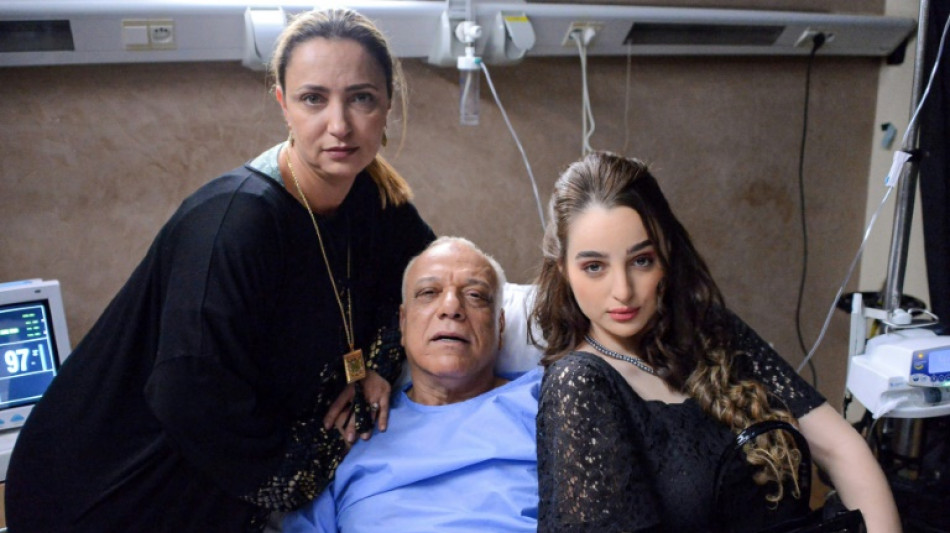
-
 Prince Harry to visit UK on anniversary of queen's death
Prince Harry to visit UK on anniversary of queen's death
-
'Something has to change', says Amorim after United humiliation

-
 Stocks mixed after Nvidia record earnings
Stocks mixed after Nvidia record earnings
-
Actor Micheal Ward in UK court on rape charges

-
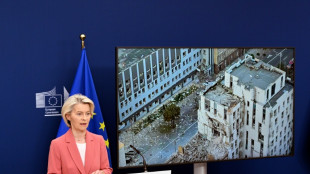 EU summons Russian envoy after mission damaged in Kyiv strike
EU summons Russian envoy after mission damaged in Kyiv strike
-
Deadly Russian attack kills 15 in Kyiv, raising fears for peace talks

-
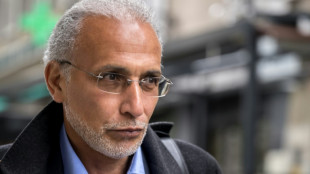 Swiss court rejects Islamic scholar Ramadan's rape conviction appeal
Swiss court rejects Islamic scholar Ramadan's rape conviction appeal
-
Russian attack kills 14 in Kyiv, including three children

-
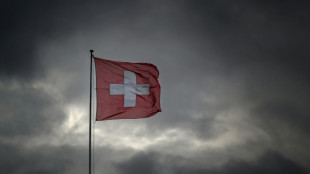 Swiss economy set to slow due to US tariffs
Swiss economy set to slow due to US tariffs
-
Hong Kong media mogul Jimmy Lai verdict to come 'in good time': judge
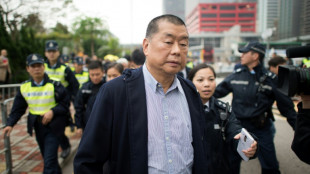
-
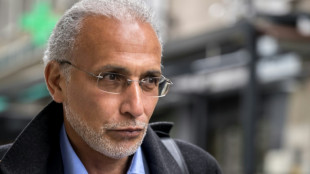 Swiss court rejects Tariq Ramadan rape conviction appeal
Swiss court rejects Tariq Ramadan rape conviction appeal
-
Asian markets mixed after Nvidia earnings

-
 Rising Australian golfer makes comeback after losing sight in left eye
Rising Australian golfer makes comeback after losing sight in left eye
-
Scandal facing sister of Argentina's president: 3 things to know
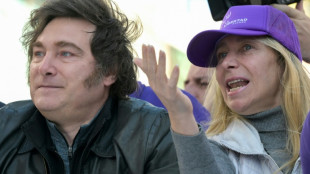
-
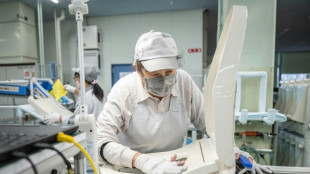 Need a pee? Japan has QR code for that
Need a pee? Japan has QR code for that
-
Five things to know about Guyana
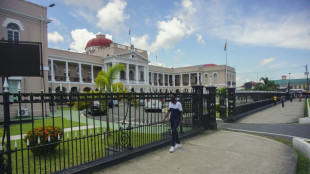
-
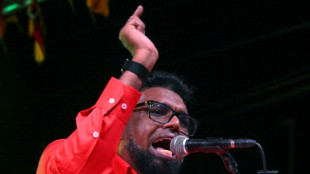 Guyana, emerging oil superpower, elects new leaders
Guyana, emerging oil superpower, elects new leaders
-
Nigerian designer pushes 'Afro-lux' onto the global fashion scene
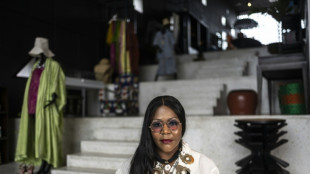
-
 Gunman still at large after Australian police killings
Gunman still at large after Australian police killings
-
Norway, environmentalists back in court over oil field permits

-
 Trump moves to limit US stays of students, journalists
Trump moves to limit US stays of students, journalists
-
Attack and never give up: Inside Japan's deadly boxing scene

-
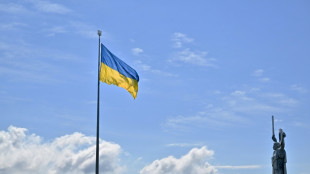 Russia hits Kyiv with 'massive' deadly overnight strikes
Russia hits Kyiv with 'massive' deadly overnight strikes
-
Injury-hit Wallabies welcome back Alaalatoa for Argentina Tests

-
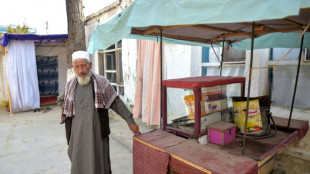 Long-awaited pension payments relief for Afghan retirees
Long-awaited pension payments relief for Afghan retirees
-
Chivu's Inter turning the page on Champions League humiliation

-
 Japan confident on wind power after Mitsubishi blow
Japan confident on wind power after Mitsubishi blow
-
Hamburg host derby rivals St Pauli in German top-flight reunion

-
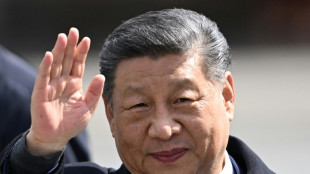 China to bolster non-Western alliances at summit, parade
China to bolster non-Western alliances at summit, parade
-
Climate-driven wildfires reversing pollution progress in N. America: study

-
 Sabalenka eyes Fernandez revenge in US Open third round
Sabalenka eyes Fernandez revenge in US Open third round
-
White House fires US health agency head after she refused to quit
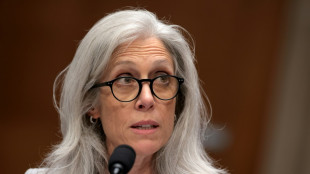
-
 Super Rugby to mark 30th anniversary with tweaks to finals format
Super Rugby to mark 30th anniversary with tweaks to finals format
-
Messi brace puts Miami into Leagues Cup final

-
 Can a giant seawall save Indonesia's disappearing coast?
Can a giant seawall save Indonesia's disappearing coast?
-
Motive probed for US shooting that killed two children, injured 17

-
 Bisexual ex-Australian Rules player praised for 'courage and bravery'
Bisexual ex-Australian Rules player praised for 'courage and bravery'
-
South Korea to ban mobile phones in school classrooms

-
 Alcaraz banishes US Open demons to reach third round
Alcaraz banishes US Open demons to reach third round
-
Kipchoge feeling the pressure ahead of Sydney Marathon
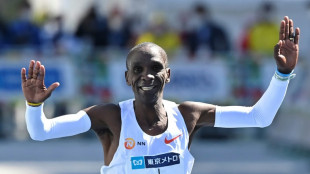
-
 Clooney and Netflix team up for Venice festival spotlight
Clooney and Netflix team up for Venice festival spotlight
-
Trump stamps 'dictator chic' on Washington

-
 UN Security Council to decide fate of peacekeeper mandate in Lebanon
UN Security Council to decide fate of peacekeeper mandate in Lebanon
-
Alcaraz sprints into US Open third round as Djokovic advances

-
 Qantas says profits up, strong travel demand ahead
Qantas says profits up, strong travel demand ahead
-
'Perfect storm': UK fishermen reel from octopus invasion

-
 Alcaraz crushes Bellucci to reach US Open third round
Alcaraz crushes Bellucci to reach US Open third round
-
Townsend reveals Ostapenko 'no class' jibe after US Open exit
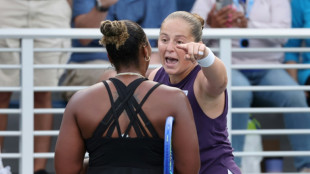
-
 Israel ups pressure on Gaza City as Trump talks post-war plan
Israel ups pressure on Gaza City as Trump talks post-war plan
-
NATO says all countries to finally hit 2-percent spending goal


Tunisia TV series sparks polygamy row
A Ramadan TV series dealing with polygamy has sparked a heated debate in Tunisia, an Arab pioneer in women's rights that banned the practice decades ago.
"Baraa" (Arabic for "innocence") has also been criticised by rights activists and secular politicians for its portrayal of customary "orfi" marriage, religious unions not sanctioned by the state.
Both practices are punishable by up to a year in prison under the country's 1956 family code.
But in one episode, the series' main character, Wannas, declares to his wife and children that he has the right to marry a second woman under Islamic law, which "trumps all other laws".
The series, aired at prime time after observant Muslims break their daytime fast, has sparked a backlash on social media.
"It's disappointing to see these subjects being debated," said Tunisian actress Mariem Ben Hussein.
Post-independence leader Habib Bourguiba outlawed polygamy in the family code passed just five months after the country's 1956 independence from France, a piece of legislation that was nothing short of revolutionary in the Arab world at the time.
It also changed the law so that divorce cases had to go through the courts, meaning a husband could no longer simply declare a marriage over.
- 'Out of the question' -
Tunisia's 2011 revolt, which overthrew Bourguiba's successor Zine El Abidine Ben Ali, brought in a parliamentary system ideologically divided between secularists and Islamist-leaning parties such as Ennahdha.
The strongly secular Free Destourian Party (PDL) founded by one-time members of Ben Ali's ruling party has been one of the loudest voices against "Baraa", saying that "putting these questions back on the table is out of the question" and an affront to women's dignity.
The PDL also blames Ennahdha, politically dominant after the 2011 revolt, for a rise in "crimes" under the family code and has frequently called for its rival to be dissolved.
Rights group Aswat Nissa ("Women's Voices") said polygamy and customary marriage were "forms of violence against women" and that discussing them "normalises a culture of impunity".
The group has urged the country's broadcast regulator to take the programme off the air.
But sociologist Mohamed Jouil said the series does "not necessarily reflect Tunisian society".
"Talking about polygamy and orfi marriage doesn't threaten the gains that women have made," he told AFP.
Jouil added that many Tunisians happily discuss such issues in private but are angered when they are aired in public -- where commentators are "instrumentalising" the issue for political gain.
- 'Subject of debate' -
Civil servant Nadia Abdelhak agreed.
"The over-reactions to the series are trying to convince people that everything related to Islam is backwards," the 28-year-old said.
Sociologist Foued Ghorbali said that while the subject remains taboo, polygamy is still an issue in Tunisia.
After Islamist movements grew following the 2011 revolt, "religious marriage became more common" particularly among university students looking for "halal" sex, he added.
"Some Tunisians support customary marriage," he said.
The justice ministry said courts examined 1,718 cases of orfi marriage between 2015 and 2020 in the country of 12 million people.
Moreover, the freedom of speech that came with the end of Ben Ali's dictatorship allowed people in favour of such practices to openly say so.
In early 2018, a group of women held a protest to demand the re-legalisation of polygamy.
Such controversies ought to be reflected in the arts, Ghorbali said.
"It's not the role of drama to present a positive image of society. It can show a point of view or phenomena in society that could be a subject of debate," he said.
S.Keller--BTB
